

The last day of the year! (Big deal.)
We're buying an inexpensive used car for my newly-engaged daughter today; we're buying it locally, which means that next month my wife and I drive it to Utah. I'm not especially looking forward to that... North America is a big continent. At the same time, however, I'm looking forward to doing something out of the routine.
Newly-engaged: On Saturday night the young man popped The Question, and she replied "yes." So we have another wedding this coming year.
I finished listening to Hector Berlioz' grand opera "Les Troyens" (The Trojans) yesterday... a disappointment. He took an interesting classical work (Virgil's Aeneid) and Frenchified it up into something suitable for the high Victorian era. Eh. But... you have to admire the plot.
Aeneus, a Trojan hero, flees the burning city of Troy at the behest of the Gods to found a new city in Italy - Rome. Along the way he and his band stop in Carthage, where he and queen Dido fall in love. Driven on by the Gods, he leaves Dido, who becomes angry over being spurned. Her people swear revenge on Aeneus' folk, and she commits suicide. Before dying she has a mystic vision, and rejoices in the future hero of the Carthaginians, Hannibal, whom she sees invading Italy in the Second Punic War. However, Dido also sees Carthage's eventual utter destruction by Aeneus' descendants. The opera ends with Berlioz' "Trojan March" heard in the distance.
Have you ever read about the Punic Wars? Interesting stuff. The story I read was that the Romans didn't just defeat the Carthanginians, they took the populace into slavery, pulled down all the buildings and sowed salt into the fields so that the city could never, ever rise again. But the wikipedia article (scroll down) cites an article maintaining that this was a 20th century fabrication not mentioned in any primary sources. You learn something new every day.
The Punic Wars resonate into our own era. Napoleon reasoned that the force with the superior land army (the French) would defeat the force with the superior navy (the British) because this was the pattern from classical antiquity (Rome had the superior army, Carthage, the superior navy). Even Hitler believed this. A thorough, non-biased study of history was obviously in order... it might have prevented the Germans from being the extended wintertime guests of the Russians (like Napoleon), among other things.
...not that anyone here would have wanted Hitler to prevail, of course!
Anyway, Happy New Year! More history awaits us.
I had a great time with my friend Bob Fawcett (former Suburbs Old Boy) yesterday morning... we went to the Manassas battlefield to find the site of his great-great-grand-uncle's death in action during the battle. Niles Fawcett was a sergeant with the 4th Texas Regiment, led by General John Bell Hood, during the Second Battle of Bull Run, 30 August 1862. With help from the Park Service battlefield historian we were able to track the 4th Texas' advance on the afternoon of the 30th.
The 4th moved east along with is now Lee Highway; this map shows the path of the regiment across what was then open country but now is wooded. You can follow it on the bottom map, which was provided by the Park Service. Niles Fawcett was killed when his regiment overran one of three federal artillery batteries - the park historian surmised that it was probably Kern's Battery, being that the other two were quickly surrounded and overwhelmed and didn't get off too many shots, if any. Bob's unfortunate relative was killed when the contents of a canister round (a hollow shell filled with lead or iron balls, effectively turning the cannon into a large shotgun) struck him over his left eye, killing him. According to a letter, he was buried on the battlefield near Cub Run.
Our mission was to find the approximate location of Kern's Battery and the site of Niles' death. This required walking a trail from Point 8 to Point 9 (Chinn Ridge) on the map, then backtracking about half way after finding the ridge where the artillery was sited, and striking out northeast along the ridge. (The 4th Texas moved parallel to the trail.) As the satellite image shows, this area is heavily wooded and it's easy to get lost. In fact, we did. But with the help of the handheld GPS device Bob brought along, after some time we got back to the trail after walking in a circle (shown in red). I now have a better appreciation for the phrase, "Lost in the woods." It's easier to do than one would think, in a featureless forest.
Problem: A surviving letter from Niles' brother stated that Niles was buried near Cub Run, on the battlefield. But Cub Run is four miles away from the site of the fighting, and the Confederates were extremely unlikely to transport a corpse to camp. Bodies were nearly always buried on site. So the writer probably mistook the existing creek, Young Branch, for Cub Run. Or... he wasn't killed right away and died elsewhere and was buried near Cub Run (a less likely solution since the wounded were taken to the rear). Where is Niles actually buried? I'm guessing somewhere near the trackless forest we walked. Or perhaps his remains were recoved and moved to the nearby Groveton Confederate Cemetery along Lee Highway, where only two of the 250+ bodies buried there are known by name. There's no telling.
It was an interesting trip; in the many, many times I've been to local Civil War battlefields, this was the first time I went to one to find a battlefield death site and a burial place. I have always had an appreciation for the magnitude of death and injury associated with a major battle like Second Bull Run; now I have an apprecation for the size of the battlefield as well!
I stopped into the Myer-Emco store near Tyson's Corner... yes, they still keep the lights subdued in the showrooms. But nowadays video and audio are integrated, so it was rare to see audio equipment only - they all had wide-screen monitors attached. "Home theater" is all the rage these days. Looking at that stuff, to me, is about as fun as looking at computers, which is to say, not fun at all. (I work in IT, and a computer, for me, is a rather annoying tool. They're about as sexy as rusty screwdrivers.)
I did note that the most expensive equipment in the store was made by McIntosh, which retains 1970's front panel aesthetics. While receivers nowadays are often black plastic with orange LED readouts, the McIntosh gear is black glass with green indicator lights and big blue analog meters. Big silvery knobs, too. Very 70's, very cool. (Well, to my eyes.) Look at this: 75 watts per channel, TUBES.
(Why tubes? Many listeners claim that when overdriven or nearing that state, tubes produce a softer and more "musical" sound than solid-state gear. I understand the reason for this is the way they produce harmonics, but I have never examined it in detail, nor have I heard a lot of good tube gear. So I couldn't say, personally. I have discovered, however, that as far as guitar amps are concerned, tubes produce a sweeter distorted tone that any effects boxes or solid-state preamps I have heard, so there may be something to it.)
And... the McIntosh preamps and integrated amps still have photo inputs for turntables. I will never get rid of my vinyl...
In fact, I was listening to some last night. About ten years ago a guy at work gave me upwards of five-hundred of his records. I was going to throw out the circa 1970 five disk premium boxed set Hector Berlioz opera Les Troyens (The Trojans) I got from him, but a little voice suggested that I'd want to listen to it some day, after reading the source material by Virgil (The Aeneid). Well, I read that a couple of years ago so it's time to listen to Berlioz. A four hour epic, I'm nearly half-way through. Pretty bombastic, but certainly dramatic. I just finished with the part where the Trojan women, fearing rape and slavery by the Greeks who have just entered Troy via wooden horse, have thrown themselves to their deaths from the battlements or gutted themselves with knives.
Times were tough back in Late Bronze Age Turkey...
Ding dong merrily on high! I'm sick of Christmas carols! Really, if I hear "O Holy Night" one more time I'll shrivel up. Being enjoined to get down on my knees constantly is making me crabby.
And at the risk of alienating some of you, I will confess that I really, really don't like "Silent Night." Never have. I recall singing it once when I was in what must have been first or second grade and feeling distinctly fidgety about it. It's just so precious and emotionally heavily-laden, like you have to achieve an advanced state of serenity, reverence or holiness to appreciate it. It's just me, okay? There are tons of other carols on the same subject I love, but that particular one just makes me kind of go "yuk" inside.
Actually, my Christmas was far better than the preceding sentences might lead you to believe. It's just that, ADHD as I am, I get tired of Christmas soon after Christmas day. It's a Christmas crash, like a sugar binge. But who can blame me, really? The stores and the media start howling about it in earnest shortly after Halloween, so it's a two month-long sales campaign. By the end of that I'm burned out with the parties, the Christmas carols, the stores and the tree - which begins to look like an unwelcome guest in my living room.
One thing I'm decidedly NOT tired of, however, is the time off to putter around the house, watch DVDs, listen to music or get some household work done (I have an oil and thermostat change calling me). As Braveheart bellowed as his innards were being tugged from his body, "FREEDOM!"
I'm field-testing my Coolpix S200 to see whether or not I'll keep it. (As I mentioned before, COSTCO has a generous exchange-return policy.) I can take the kinds of extremely casual, arm's length facebook.com style photos popular among my daughter's generation. But as the one I include here makes me look like an old weirdo - Ed Gein, perhaps - I won't.
I had an odd dream the other day which will lead to a field trip later this week. I had a dream that I was once again looking at stereo equipment in a store during the 1970's; I used to spend a lot of time doing that as a teen and a twentysomething. Back then, the showrooms were always intimate, darkened rooms that showed off the radio dial indicator lighting to maximum effect. Or perhaps it was because they wanted to lessen the visual distractions so customers could focus on what they were hearing - I don't know. It was kind of exciting and mysterious, and for many years it was one of my environments... so, in a day or two I'm going to visit the Fairfax MyerEmco store, just to see if the showroom practice has changed. Not to buy anything - just to look and listen.
Good heavens. I just read the paragraphs I wrote, above. What a thoroughly unpleasant blog entry. I'm really not normally that bad, honest.
Today is my 27th wedding anniversary. Hard to believe that any sane woman would stay wed to me, but it's so. In my own defense I quote Joanne Woodward, who is married to Paul Newman - a man who usually topped "Sexiest Man in America" lists in his prime. She said, "Looks are great but looks fade. If you're married to a man who can make you laugh every day then you've really got something!" (I hasten to point out that my wife normally laughs with me, not at me.)
I'm sure you occasionally get those family Christmas letters, right? The ones that describe, in great detail, all the ups and downs in the family's past year? Little Patrick loves his first grade teacher, Melissa is doing well with girl scouts, Mom is busy changing diapers, etc. Who cares? I can barely remember the kids' names, let alone what they think of their teachers at school. And it's odd how many of these letters use the word "Zoo" in the title. For me it invokes mental images of droppings in animal cages (all the more so if Mom mentions diapers).
Every year my wife and I try to identify the worst one, but so far this year we haven't seen a truly dreadful example. The family I thought would be the main contenders let me down... usually you can count on them for some bombast about how incredibly successful Dad was at work, etc. A few days ago we got one that used the phrase "saggy butt" - which I think probably ought not to appear in a seasonal greeting - but as the woman in question is 85 we have to cut her some slack. All the more so since she made some perceptive comments about aging and, hey, I figure an 85 year-old is entitled to write pretty much anything she wants.
A funny MSNBC article on the subject is here. You have got to love some of these: "My family actually received a Christmas letter about how they accidentally ran over their new puppy with the mini van and now the puppy has three legs (they said this thinking that was funny.)"
It would be hard to beat the one we saw in 2004, however. It isn't every year you see words and phrases like "pissed," "strung up by his balls," "fag boyfriend" and "bitch" in a Christmas letter. Seasons Greetings! Here is page one and page two - enjoy. And no, I don't know this person. It's a friend of a friend kind of a deal.
I was looking through some old Christmas catalogs the other day. Look, it's the Red Ryder BB rifle Ralphie wants! Some of the old images are kind of weird, like this one, which I find somewhat unsettling.
...and that's it. As I wrote yesterday, I have the next twelve days off. If I don't log in again before the 25th, Merry Christmas to you and yours!
Given that Christmas is on the way I suppose it's appropriate that I provide a link to my (that is, Jonah Begone's) Christmas page. It's the HTML equivalent of that dusty box full of Christmas crap that you pull out of the attic every year. This year I added a new article, A Politically Correct Christmas, sent to me by one in whom the seasonal spirit overflows.
By the way, check out the olde-tymey illustration I use as a logo, perhaps by Thomas Nast. It's apparently the spirit of 1878 greeting Santa and is intended to be good-natured, but it looks sinister to me. Looks like Santa and Jack Frost are squaring off to kill one another.
And here's an article I threw together based on something I read in the book I'm currently reading, "Civil War Curiosities - Strange Stories, Oddities, Events and Coincidences" by Webb Garrison. The Outhouse Johnstone story took place a block away from where Western Suburbs had its annual meeting Monday night (at the Firehouse Grill in downtown Fairfax).
I spent some time looking through the old photographs in shorpy.com the other day; what fascination there can be in old pictures! For instance, check out the glassworkers. Check out the kid on the right. Welcome to New Jersey!
Another good one is Bodie, California, 1962. I'd like to poke around in these buildings on some solitary, wind-swept day. Or Chicken dangers.
What makes shorpy.com so interesting is that readers do research of their own and provide comments. For example, check out Oscar Radnisky, 1916 atop his trash heap. ("Is father alive?" "No, he's a milkman.") A reader supplied, "He died in Taunton, Mass. (most likely Taunton State Hospital), in September 1971, at the age of 70." What an odd, sad life he must have led. Or perhaps not! Who knows?
One of the images on shorpy.com, this one, was the subject of one of those amusing fark.com Photoshop contests. (An instructor at a Nikon class I once attended said that Photshop can be used for two things, 1. Good, and, 2. Evil.) I was first introduced to the hugely popular fark.com when a photo on one of my pages was linked to a fark.com page; the resultant traffic greatly exceeded my bandwidth limits and took down my site!
Many of the shorpy photos were taken by Lewis Wickes Hine, who had an agenda: social reform and the elimination of child labor. His wikipedia entry is here. You may have seen his photo Power house mechanic working on steam pump before; I have in photographic journals of various types. Very artful. Reminds me of a scene in Fritz Lang's "Metropolis."
Last night I discovered a great new way to lose weight during the holidays: buy a new bathroom scale. Ours is from COSTCO, shows fractional pounds and weighs me a full six pounds lighter than the old scale did. As it's closer to the weight measurements I see on the doctor's scales at work, I suspect it's more accurate. At any rate, yesterday I weighed 261 - this morning I weighed 255. Swell! If 3,000 calories represent each pound of fat that means that I can eat 18,000 calories today and not really gain any weight! Wahoo! But I shouldn't make a pig out of myself and consume it all. I'll limit myself to 11,166 calories...
For your information - and as a valuable lifestyle management note - I will be on leave from this Friday to the 2nd of January, so there may or may not be updates to this blog. As always, it depends upon my whim and how bored and restless I become at home. Yes, yes, I know, you'll be impatiently waiting to check in to see what's happening with my weight and reading material, but that can't be helped. Brigham needs his personal time.
Christmas! Toys! Check out this website a reader alerted me to: wishbookweb.com - Christmas catalogs from 1944-1985. Chances are at least a couple of your childhood desires are in one of these... From the 1944 Montgomery Ward catalog is this, Boys' drill rifles with U.S. Army-rejected walnut stocks. How cool was that? And check out these "playsuits." Looks like the naval officer is having somewhat better success chatting up the WAC than the army officer is, who is getting annoyed and drawing his gun. The WAVE looks on admiringly. Ah, happy days.
A different reader told me about another interesting pop-cultural/historical website, shorpy.com, a sort of blog about past times. I'll have to spend some time here when I can - interesting stuff. Let's look at... oh, I dunno... "Pretty girls." Check out "Hollywood's Loss" - a Burbank girl from 1942. Or "Mermaid Club." Or "Lady in the water, 1947." Or the truly stunning A Winning Miss" (from 1911). Whew. My favorite comment is "Wouldn't throw her out of the Re-Elect Taft rally." A real stunner is the "Third International Pageant of Pulchritude and Ninth Annual Bathing Girl Revue, June 1928. Galveston, Texas." Miss France looks like a man. Finally, here are "Inner-city beauties." Clearly, the definition of the term "inner-city" has changed somewhat since 1927.
I like today's Wondermark strip. Let it be on the record that I hate, hate, hate Mannheim Steamroller. When I was in Utah all during the Eighties, audio stores used to blare that over-produced synthesized crap every December in hopes of attracting buyers. The fact that it was universally admired just made me loathe it all the more. I'll take clever, budget-produced seasonal music any day, like, "Por Favor, Senora (May I Sit Next To Your Menora?)" by Creamed Corn or their equally good "Hoping To Find A Ukulele Under The Christmas Tree." It's just not Christmas around my house without these.
I am now reading "Civil War Curiosities - Strange Stories, Oddities, Events and Coincidences" by Webb Garrison. So far, nothing I haven't read elsewhere. I've been reading Civil War books on and off since 1973; it stands to reason that I've seen a lot of this stuff.
Tuesday, weigh-in day; apparently I needn't have worried. Despite overeating at four Christmas parties last week, I am two pounds down from where I was last Tuesday. (I'm now at 261.) I have no idea why, but when I tell women this they'll get annoyed. My strategy is to maintain a weight over the holidays if I can and lose some more in 2008.
Today my son Ethan is 24 years old; Happy Birthday! Wow. Was it really that long ago? To me, it seems but a few years back. Now he's a husband. How swiftly time flies...
I quit reading "Twilight of the Wagners - The Unveiling of a Family Legacy" by Gottfried Wagner as it got unbearably whiny. I suppose it's important source reading if one is interested in the modern day squabbles of the Wagner descendants - but I'm not. I did learn a few things from it, however, namely that Richard Wagner was really a vicious anti-Semite. I had always "known" this, but seeing it referenced secondhand and reading the citations are two different things. In a letter reproduced in the book, the composer describes the desirable destruction of Jews in Europe... prefiguring Hitler's Final Solution. I'll have a difficult time, when hearing Wagner's music, not thinking about that. It's like hearing a Sinatra song and being reminded of what a thug he was.
I think that it is impossible to separate the created thing from the person behind it. In other words, creativity cannot be inhuman. For every creative endeavor - this article, even - there is a person of interests, personality and passions, and to at last some extent the created thing is representative of him. So... if the person is ugly and the created thing is beautiful there's a disconnect at play. A fraud is being perpetuated. A lot of Wagner's music is bombastic, but some of it is very lyrical. And when I hear the lyrical stuff, in the back of my head there will probably be a small voice reminding me, "This man wanted to see the 'filth and pollution' of European jewry erased from Germany" and the lyrical passage will become discordant.
On to less heavy topics: I have a cold and am presently at home sneezing my head off. In a Christmas present to my co-workers I have decided to not spread germs around there. I also have a sore throat, which means that my usual baritone is a bass. So today I'm going to poke, poke, poke around the house.
I attended four major Christmas parties this past week; I am dreading stepping on the bathroom scale for tomorrow's weigh-in.
Oh, in case you want to know the whereabouts of Loretta "Hot Lips Houlihan" Swit of MASH, she is apparently touring the U.S. selling jewelry. My wife and I had free tickets to a jewelry expo near Dulles this past weekend, so we went. The very first booth upon entering was hers. Yes, she has aged. But, duh. The cruelest thing about the entertainment industry is the fact that there are millions of people who expect you to look the same at age 70 (Swit's age) as age 40 (when she was doing MASH). Anyway, I spoke with her briefly... looking at her, I got a sudden unpleasant feeling I couldn't at first account for. Doing some rapid mental analysis I figured it out.
Speaking with her, she confirmed that before doing MASH she appeared in a two-part episode of Hawaii Five-O as a telephone operator; this was the first time I had seen her on TV. The episode was entitled "Three Dead Cows at Makapuu." Here's a capsule summary: "Alexander Kline, a brilliant scientist who had worked for the U.S. government, creates the Q strain, a bacteria that can wipe out vast numbers of people in a short time. He quit his U.S. position. To protest research into biological weapons, he will use the Q strain to wipe out Hawaii's population. Five-O catches up to Kline but the scientist has already left a vial with the killer bacteria in a place where it will spread." At the time this episode very much reminded me of a movie I saw as a little kid on TV a few years prior, City of Fear (1959), which was pretty much the same thing except instead of a strain of killer bacteria it was radioactive "Cobalt 60" - hence my dimly-remembered unpleasant feeling when meeting Loretta Swit. Yeah, I know, it's a puzzling and indirect mental path. But that's me.
Refer to yesterday’s entry - I asked my father-in-law about where he guarded German prisoners. I was wrong, it wasn’t Terminal Island. His response was enlightening and funny:
“Wes - The first venue was up near Burley, Idaho. The mailing address was Rupert, ID but Burley was the "Big Town" where we went to shows, etc. There were about 5,000 POWs there. The second venue was Idaho Falls where we had a branch camp. Here we had about 500 POW's and about 15 or 20 G.I.s and two officers. Most of these POWs were captured in North Africa and were older guys. A few were young Hitler's Children; a pain in the neck. They thought that Hitler would rise again. – Don”
On a totally unrelated subject, what do Peggy Lee, songwriter Jerry Lieber, German author Thomas Mann, childhood diarist Anne Frank, Elvis Presley, Samuel L. Jackson, Johnny Cash and film noir all have in common?
Yesterday I linked to a Peggy Lee song, “Is That All There Is?” It was released in 1969 and made it to #11 on the U.S. pop charts, but I first heard it in 1972. I recall hearing it for the first time on a car radio and was immediately hooked. I have always liked it. Not only was it wildly unlike everything else on the radio at the time (in 1969 pop was preoccupied with trippy, mind-expanding songs with drug overtones – this song was an old-fashioned cabaret song), it was profound. Even with art music (classical), I am unfamiliar with any other song that expresses disillusionment in life so well. But there’s a good reason for that.
Its musical quality was assured since it was written by songwriting giant Jerry Lieber, half of the famous Lieber-Stoller songwriting team that wrote many hits, including “Hound Dog,” “Love Potion Number Nine,” “Kansas City,” “Stand by Me,” “Poison Ivy,” “Jailhouse Rock,” to name a few. Elvis Presley recorded over twenty of their songs.
But where did Lieber get the lyrical content from? His (then) wife, Gaby Rodgers. She had been reading a piece by the famous German writer Thomas Mann entitled “Disillusionment,” written when he was but twenty. The following summary, taken from Colin Wilson's book “The Craft of the Novel,” also describes the song lyrics:
The narrator is sitting in St Mark's Square in Venice when he falls into a conversation with a fellow countryman. The man asks, "Do you know what disillusionment is? Not a miscarriage in small unimportant matters, but the great and general disappointment which everything, all of life, has in store?" He tells how, as a small boy, the house caught fire; yet as they watched it burn down he was thinking, "So this is a house on fire? Is that all?" And ever since then, life has been a series of disappointments; all the great experiences have left him with the feeling: "Is that all?" Only when he saw the sea for the first time, he says, did he feel a sudden tremendous craving for freedom, for a sea without a horizon... And one day, death will come, and he expects it to be the last great disappointment. "Is this all?"
The songs omits the part about the sea, but concludes with Mann’s sentiments about life’s last great disappointments. Rodgers had given the book to her husband to read, and he, too, was impressed with the ideas behind the work – enough to incorporate them into a song.
Gaby Rodgers is an interesting person, known in the film noir buff world as the woman who opened the Great Whatzit in “Kiss Me, Deadly” (1955). The Great Whatzit is a stolen container that that people – including Mickey Spillane’s Mike Hammer – are desperately trying to get their hands on. Lives are lost over obtaining it. It’s always described metaphorically and sometimes mythologically, being compared to Pandora’s Box. When it eventually is opened by Lily Carver (Gaby Rodgers’ character), at the end of the film, all hell breaks loose. What’s pictured next suggests nuclear fission.
Remember the Ark opening scene in the first Indiana Jones film, "Raiders of the Lost Ark?" Most film historians credit that as a reference to the Great Whatzit. There’s also a cryptic scene in Quentin Tarantino’s “Pulp Fiction” when Samuel L. Jackson opens a briefcase, which emits a glow. “Is that what I think it is?” he asks. This is confirmed. You never find out what it is. This is probably another Kiss Me, Deadly reference.
Kiss Me, Deadly is a critical favorite noir which has inspired much commentary, some of it valid, some of it unpromising. It’s a darling of critics because it seems to portray 1950’s style, paranoia and mores so well.
So… what’s in the box? I once tracked down Gaby Rodgers to ask – my interview notes with her are here. When she asked the director she got a short reply: “It’s atomic.”
Rodgers confirmed that as a young child, in Holland, she was a playmate of Anne Frank’s, the child who penned a famous diary of her captivity as a Jew under the Third Reich. And she also confirmed that she had a role in writing the Johnny Cash hit “Jackson” with her husband, Jerry Lieber. (I think I've seen her credited as the songwriter on that one.)
And this is the end of my rather labored account. I think you now know everything about Peggy Lee’s “Is that all there is?” to know, except perhaps that Randy Newman did the arrangement.
Have a great weekend!
I spent a %#$^!@! hour or so under the %#$!%#$@! car and got that %#$^@$! starter installed last night; I am now sore in my neck and upper body from craning upwards to see and avoiding the chunks of greasy dirt that falls from the engine when a major component is removed. I'm too old for this. Yesterday I was lamenting my choice of engineering as a career field. It does have one good thing going for it: it's cleaner and less arduous than being an auto mechanic!
Blue collar, white collar... I enjoyed my three years as a telephone cable splicer when I was in the Marines. Aside from the industrial accidents I got into, it was fun, working atop a telephone pole or in a manhole. I've always been the type to enjoy working with my hands, and at the end of the day I could look and see the tangible, physical results of my labors (something I can no longer say). But, like just about every other father, I haven't encouraged it to my kids. Them I want in college!
I am now reading "Twilight of the Wagners - The Unveiling of a Family Legacy" by Gottfried Wagner. The family in question are the descendants of composer Richard Wagner, pictured above. Gottfried, Richard's great-grandson, was born in 1947 and spent his entire life dealing with Hitler, the Holocaust and the family industry (revering Richard Wagner and staging his operas). He makes the case that the aggressively pro-German, anti-Semetic heritage of the Wagners led to the Third Reich, or at least helped form some of the intellectual underpinnings for it. Pretty heavy. I'm only a chapter into it... more later...
"Richard Wagner's music is better than it sounds." - Mark Twain
It reminds me of a wartime memoir written by a former German WWII officer I once read; reading it, you'd wonder how the German Army was as successful as it was, being led by such half-hearted Nazis. According to him, he never really bought into the whole conquer Europe agenda. Perhaps this was a stance necessary for publication, or guilt-free reading. But then, my father told me that he never met a German in 1945 who didn't claim that he really wasn't a Nazi and that whole Third Reich thing was just a colossal mistake and can't-we-be-friends-got-a-smoke-G.I.? It's interesting that Stephen Ambrose, interviewing many, many World War II vets, reports that of all the Europeans the G.I.'s met, they seemed to like the Germans best - they were the most like Americans. (The Dutch were also admired, the French were not.)
My father-in-law was an eighteen year-old soldier in 1945, when he graduated from high school. He was stationed at Terminal Island in Los Angeles, guarding German prisoners (I think that's where he told me...). He told me once how one fellow, who was particularly pleasant and appropriately regretful about his activity in the German Army, asked him for sponsorship to become an American citizen. The POW was friendly, courteous, skilled, industrious and spoke decent English. "What did you say to him?" I asked. "Go to hell!" he replied.
Terminal Island has an interesting history - from a website: "This strategically located island in Los Angeles Harbor was one of the few places in the continental U.S. were martial law was declared during World War II. It was declared in December 8,1941, the day after the attack on Pearl Harbor because U.S. military authorities thought they had a very explosive situation on their hands. The island was shared by a major U.S. Naval base, major oil installations and a sizeable community of ethnic Japanese fishermen. It was believed that the potential for sabotage by the ethnic Japanese was so great that the military had to intervene. Under martial law the activities of the ethnic Japanese were closely watched and their persons, homes and boats were liable to search at any time. No concrete evidence was ever obtained that the Japanese residents of Terminal Island were disloyal but, still, their presence was intolerable to the U.S. military. On February 1, 1942, government authorities conducted a surprise raid on the island and rounded up all ethnic Japanese males. They were taken into custody and shipped off to the enemy alien internment camp at Ft. Lincoln, Nebraska because the relocation camps, planned for the ethnic Japanese, were not yet ready.When the relocation camps were completed the women and children were evacuated from Terminal Island and sent to relocation camps and their menfolk soon followed. Following the removal of the ethnic Japanese, two cannery buildings previously used by the ethnic Japanese were taken over and used by the Navy."
Hmmm... no mention of POWs. Maybe it was elsewhere that my father-in-law guarded POWs. I'll ask.
261 on the scale this morning, a new low. This is puzzling, since I ate all sorts of sweets at a "holiday" party at work. (I refuse to play along with that whole generic winter celebration thing and instead wish people a "Merry Christmas." Call me the Grumpy Multiculturalist.) It appears that my weight trend is still downward, it's just taking longer to get there, "there" being around 245. I figure that if I can maintain a weight over the holidays I'll be doing well.
I was comparing notes with one fellow over a table full of cakes. He was wondering why he turns into such a lazy pig during the winter. It must be some kind of hiberation thing going on in the head. Like him, all I really want to do is eat, sleep, eat, nap, read, watch a movie, eat, sleep, eat, nap, read, etc. Putter around the house. Poke, poke, poke around, as one Civil War diarist put it. But this is not what we were designed for. Our hearts and spirits were designed for epic journeys, thrilling adventures and mighty challenges. Rugby and Civil War reenacting are two 21st century suburban stand-ins for those.
The article I linked has, “Something important seems to be going on, but we can't quite make heads or tails of it,” he says. “The reason we are drawn to these hero epics is because the human heart says, “But I was made for more. This can’t be all there is, doing eight hours in my cubicle, and taking the Metro home and cooking my dinner in the microwave and feeding the cat, and getting up tomorrow to do it again. This is it?”
Peggy Lee, girl jazz singer, once famously asked, "Is that all there is?" A question I cannot answer, Gentle Reader.
This being the Christmas season, our thoughts turn naturally to the toys of our youth. A reader of mine helpfully pointed out where one may look at an online 1966 J.C. Penney Christmas Catalog. I was ten in 1966, so I have memories of a lot of these toys. Here are a few: Lego, The Gilbert Home Laboratory, The Thing bank, Agent Zero M,
U.N.C.L.E. gear, The James Bond Attache Case, The Lost in Space Roto Jet Gun, Fireball XL-5 and the
Batman Utility Belt. My Christmas toys this year will be more expensive, but not more fun...
I think my favorite may have been the Agent Zero M pocketknife/cap pistol. Can you imagine a toy manufacturer trying to market one of those these days? Consumer groups would have a field day.
Look at that kid at left - "a walking arsenal." Secret Agent 666: That's what I wanted to be!
I spent an irksome hour or two under my minivan last night, trying to replace a starter. It's a straightforward enough task: remove the cable, remove two bolts, pull the thing out, put the new one in, torque the bolts. The problem is that the crafty Mitsubishi engineers who designed the engine made the upper bolt double as a cable terminal. (It took me awhile to figure this out; for awhile I thought a bolt that was, in fact, a motor mount bolt was the upper starter bolt.) So you have to remove a nut threaded onto an extension on the bolt (!), remove the cables, then use a 15mm deep socket (I didn't have one) to remove the bolt. As my wife had to take the other car I had to throw the whole thing back together to go buy the necessary deep 15mm socket.
And yes, I did take a tradesman's break and consulted the Internet for help, but didn't find any. Once I'm done I'll write up a little piece to post somewhere so others can benefit from my experience.
When I was in my twenties I used to regard such work as a challenge, something to be worked out and conquered by my intelligence and grit. Nowadays I'd much rather spend my time doing something else (preferable dealing with data, which doesn't get my hands and arms all greasy and cut up), thank you very much.
A real concern is that replacing the starter and starter solenoid may not make the problem (occasionally, turning the key does nothing) go away. One Internet diagnostic page I found suggested that the problem might be a bad solder joint on a module behind and under the dashboard - oh, joy.
As my son used to say when he was little, "Oh, let's just buy a new car!"
I love that word "just." It gets used at work a lot to minimize the amount of effort somebody is asking for from one of my engineers. "I'm just asking that we put a server in the data center and do some testing..." "I just need a day or two of your contractor's time..." "Can we just put in a network switch with thirty Gig-E ports to accomodate the VMWare devices?" It's one of the conundrums of the workplace - when things run smoothly and rampant proceduralism is kept to a minimum, jobs like mine (engineering manager) are easy and minimal. But when micromanagement and frustration abounds, my role is to run around throwing grease on skids in an attempt to keep things moving.
I used to bring my kids to work on the yearly "Take Our Sons and Daughters to Work Day," and, mystified, they'd ask afterwards, "What is it you do? Have meetings?" I used to reply, "I keep people from making mistakes." Nowadays it's, "I try to make progress with something - anything." When I was a little boy I wanted to be an astronaut. In high school, I wanted to be a high school history teacher. When I was in the Marines I wanted to become a telephone cable splicer. On some dark, ill-starred day I decided to go to college to become an engineer. Boy, do I regret that.
At an age and a situation (kids in college) when it's too late to change, I now know what I really wanted to do all along: journalism. I'd like to find a little town (Willoughby, perhaps) where the housing is reasonable and crime is low, and write a daily article for the local paper. Brigham's Blog - except get paid for it.
Wouldn't it be nice?
I'm now reading a book entitled "The Mayflower Murderer & Other Forgotten Firsts in American History" by Peter F. Stevens. As the great majority of these "firsts" suspiciously seem to have been accomplished by females and minorities, perhaps a better title might be, "The Mayflower Murderer & Other Forgotten Firsts in Politically Correct American History." At any rate, here's an interesting chapter, about the first abolitionists in American history. They lived further back in history than you might suppose.
I find this tale interesting because I am reasonably sure that my Clark relatives in the late 18th century/early 19th century were Quakers who assisted fugitive slaves in the Lycoming County, Pennsylvania underground railroad. These aren't Clarks that I have fully documented; these are Clarks I'm somehow related to according to a YDNA test I took (I call them the "YDNA Clarks"). But, then, taking pride in this is also somewhat politically correct, isn't it?
History is what it was. All sorts of good things happened, all sorts of bad things happened. That book I'm reading now is an example of what I call the alternative history (or non-textbook) genre. It confirms that history can be notoriously hard to pin down, and when you do you often color what happened in terms of your own historical period ("The very ink with which all history is written is merely fluid prejudice." - Mark Twain).
For instance, I recall once thumbing through a library book about the History of Howard County, Maryland, written in the 1930's. The author was a judge; I forget his name. It looked commendably scholarly. However, as I was reading through it little alarm bells were going off in my head. For instance, in one passage he noted approvingly that as there were comparatively few slave-owners living in Howard County, the county is today (1930's) characterized and blessed by a relative absence of the negro race. Okkaaay. One passage was a whopper: he speculated that as America was named after Amerigo Vespucci, and vaspucci is derived from the Italian word for a wasp, could it perhaps be that the WASPs (White Anglo-Saxon Protestants) are the God-given inheritors of the land? Whew.
... which leads us to our word for the day: Historiography, or the history of history. One aged genealogist I once spoke to told me that she thought that when all is said and done, it's the genealogists who paint the most accurate histories because they deal in human vital statistics first and social movements second. Historians seem to work the other way around.
But, why study history at all? After all, Henry Ford said, "History is bunk." A sensible answer to that is given by George Santayana: "Those who do not remember the past are condemned to repeat it." Did you ever see that Star Trek episode "Cause and Effect," where the Enterprise keeps getting destroyed again and again in a time loop? It's depressing to think that all of human history is simply a dreary time loop, with the same old mistakes committed endlessly, ad infinitum.
But Mark Twain also gave it as his opinion that, "History does not repeat itself, but sometimes it does rhyme." This is more hopeful... let's end the discussion there.
Weigh-in Tuesday - and I weigh a pound more than last week. Not surprising as there were a couple of Christmas parties. But this week I'll... awww... who really cares other than me? After all, would Clio, the Muse of History, concern herself with blogs? Or is there a lesser Muse for the Blogosphere? Clio's trashier sister, Rita, the Muse of the Blogosphere, perhaps? (NOTE: I would have provided a link to an appropriately-looking trashy woman for Rita, here, but the images google is coming up with will get me into trouble.)
Posted photos and comments from Saturday's "145th Anniversary Reenactment of the Battle of Fredericksburg" here. Executive summary: It was a lot of fun - a solid 8.0 on the Event-O-Meter.
A friend of mine, who, due to genealogical reasons now seems to be fully interested in the American Civil War, found this quote: “Mr. Seward … is exerting himself to provoke a quarrel with all Europe, in that spirit of senseless egotism which induces the Americans, with their dwarf fleet and shapeless mass of incoherent squads which they call an army, to fancy themselves the equal of France by land and Great Britain by sea.”- A quote the London Chronicle from November 1861, commenting on the Trent Affair.
Very amusing. But this is mere bluster on the part of the British. The fact of the matter was that the army of the United States, far from being a "shapeless mass of incoherent squads," was a very formidible entity indeed. While the army was downsized at the close of the Civil War, it still possessed battle-experienced leaders on the general officer and line officer levels, the most advanced weapons of the era and a thorough understanding of the future tactics of war - trench warfare. If I had to guess at the result of anything like an equal match-up of the British Army and the United States army circa 1865, it would be the Yanks hands down. In 1861, however, Abe Lincoln's policy was more or less like "One war at a time."
But consider Napoleon III's exploits in Mexico during our Civil War. Lincoln wisely avoided any confict with the French while the U.S. forces were fighting the Rebs during the war, but at the conclusion of it Andrew Johnson ordered 50,000 veterans of the Army of the Potomac, led by Phil Sheridan (arguably the most aggressive general in blue), towards Mexico with the intent of ousting the French. Napoleon got the message very quickly and ended France's involvement in Mexico without bloodshed. All it took was a march. 'Nuff said.
"Dwarf fleet?" The U.S. Navy was no slouch, either. The first ironclads were invented in America, which was well on its way to phasing out the traditional wooden navy. The British navy, who frequently got the worst of encounters with the American fleet in the War of 1812, would find unexpected American grit on the high seas as well.
For instance, if I told you that one Federal naval vessel, just one, manned by a green crew took on a small Japanese fleet - all the while in range of Japanese land batteries - and destroyed the Japanese ships and the batteries, would you believe it? It happened. Such is the tale of Commander McDougal (shown above) and the good ship USS Wyoming on 16 July, 1863. Do I have a page describing this affair? Of course I do. As Theodore Roosevelt once said of this fight "Had that action taken place at any other time than during the Civil War, its fame would have echoed all over the world."
I wonder if the editors of the London Chronicle were aware of the USS Wyoming affair?
On another topic, did you know that among their other governmental concerns, the Founding Fathers were also embroiled in a controversy about American weight and measure standards? It was a real problem in commerce. Thomas Jefferson was an advocate for a decimal system of coinage and weight (ten pennies make a dime, ten dimes make a dollar, etc.), but a system based on fours had prevailed up to that point. Here's an interesting excerpt from Andro Linklater's "Measuring America - How the United States was Shaped by the Greatest Land Sale in History" which explains the issue. As John Quincy Adams sensibly pointed out, one can look at a measure or a weight and make a fair estimation of a half, a quarter, an eighth and a sixteenth, but coming up with a tenth is less obvious.
Finally, I saw the last half of an interesting film last night, "Wild Boys of the Road" (1933), a very early juvenile deliquency "social problem" film, perhaps the first. A pre-Hays Code work, it showed a scene inside a brothel and a not-so-subtle rape scene. What fascinated me, however, was the premise: that hordes of Depression Era unemployed teenage boys left home and migrated across the country seeking work and establishing shanty towns. Became hobos, in other words. I'll have to ask my father-in-law (born in 1927) if this has any basis in fact. Another one of the film's conceits was that two girls could ride the rails and live with fifty or more young men without incident. (The rape scene I mentioned took place between an adult railroad brakeman - Ward Bond - and one of the girls.) While the film made it clear that many of the boys regarded the girls as sister figures, I am sure not all of them would!
That's it for this week. Have a great weekend!
The first snowfall of the season! Slip-slidin' fun out there this morning. My street is icy; it was fun walking to the bus stop!
But... I like this time of year in the Washington D.C. suburbs. Every now and then some snowfall that the rest of the country would considers a trivial thing completely screws up local traffic patterns, causing schools to close and the federal government to shut down. Then the newsies head out in their SUV's for Beltway remote shots to further mess things up by causing rubbernecking distractions, and the guys back in the studios run that stock footage of the car tires slipping in the snow, which I'm convinced originally aired in 1985 or so. Best of all is the closure crawls on the news shows. Before you can learn that the federal government (tens of thousands of workers) is shut down or on liberal leave, you have to learn that the Tiny Tots Day School of Gaithersburg (enrollment size: 20), the al-Rashid Academy of D.C., Howard County Maryland Public Schools and, say, the Millard Fillmore College of Finance in Annandale are closed for the day. I shut off the television warmed by the knowledge.
What I like best about the snow is that it quiets things and makes the outdoors less acoustically active. Having a hearing loss (caused by age, musket fire and loud rock and roll played in headphones and in the interiors of small cars), I am always seeking acoustically quiet environments. Loud restaurants are annoying to me; good luck having an intelligible conversation in one. As I noted before, my wife works in a Calico Corners store, which sells fabrics. The bolts are hung up in racks all over the place, and they have the effect of muffling sound. It's quite pleasant sitting there on one of their enormous overstuffed chairs. My mother used to do knitting and counted cross stitching; I recall those places as being unusually quiet for the same reasons.
I have a 19th century hearing loss, called "boilermaker's notch." I describe it here, in a little cautionary article I wrote for reenactors under my pen name of Jonah Begone. Check out that audiogram!
Do I sound like an old fogie? That's okay. If you're young, reading this, I'm convinced you'll come around to my way of thinking. I base this on my observations of sound levels heard when some young person listening to an iPod walks into a Metro train wearing a set of ear buds.
Driving in the Midwest, do you ever wonder why roads take sudden, unexplained jogs? An excerpt from Andro Linklater's "Measuring America - How the United States was Shaped by the Greatest Land Sale in History" explains why. Interesting book.
Here, enjoy these. I like the Marine Corps Eagle, Globe and Anchor best, naturally.
Elsewhere in the gallery is this page of folk and outsider art; take a look at that as well. Interesting stuff. The term "outsider art" is a relatively new one to me. According to wikipedia, "Typically, those labeled as Outsider Artists have little or no contact with the institutions of the mainstream art world; in many cases, their work is discovered only after their deaths. Much Outsider Art illustrates extreme mental states, unconventional ideas, or elaborate fantasy worlds." I first heard the term a few years back when somebody wrote me an e-mail describing a website containing photos of some homemade - "outsider" - art I recall as a child.
You see, when I was a kid there used to be this weird old hotel in Burbank called "The Old Trapper's Lodge." It is now long gone, but the courtyard was full of bizarre statuary and odd jokes. For instance, what looked like a well was labeled "the Pontiac Springs," and when one looked down into the well one saw the leaf springs from an old car - presumably a Pontiac. My Mom and I used to stop by every now and then to look around.
The statuary was moved and preserved elsewhere in Southern California, in Woodland Hills; the roadsideamerica.com site is here. My favorite sculpture as a kid was "the fight between Pegleg Smith and Big Bear" - the artist didn't spare the red enamel.
But what is art? Ahhh... good question, and I can't really answer it. It's sort of like pornography in that I know it when I see it. And, of course, it varies greatly from person to person. My father-in-law had a great quote about what art wasn't: "If I can do it, it ain't art." So works like this and this would probably fall into his classification. Jackson Pollack... let's face it, there's a high degree of B.S. in the institutionalized art world...
I posted one page of art criticism, myself, dealing with the so-called Limited Edition Historical Art Prints I see all the time in connection with the Civil War reenacting hobby. Here it is.
I suppose some of this stuff will assail my eyes this Saturday. I'm doing a one-day battle reenactment in Fredericksburg; it ought to be fun.
Last night, or, to be accurate, this morning, I did something I have always wanted to do: dream lucidly. Lucid dreaming is when you're dreaming and you know it. But normally when I dream, I have no idea that I'm dreaming and it seems like real life. Consequently, there's no getting out of the dream situation except by letting the dream move on to another subject or, as often happens, wake up with a start in a cold sweat (in the case of a nightmare). I seem to get more than my share of nightmares, by the way; I don't know why.
Anyway, this morning I was in a dream situation where - I won't explain the dream - I was confronted with an unpleasant and difficult situation. This time I simply told myself, "This is ridiculous, this is only a dream" and woke myself up. It was something of a milestone.
All of which introduces us to our word of the day: oneiristic. Simply put, it means "dreamlike," and you sometimes see it in film criticism of films noir, many of which have a narrative flow that only makes sense with a dreamlike logic. For instance, take the classic Detour (1945), which is a genre favorite of movie critics (read Roger Ebert's perceptive review). Everything is going well for the protagonist until an unlikely set of circumstances and consequent bad decisions plunge him into hell. In order for this film to work you have to, for instance, believe that it's possible for a man to pull on a phone cord in one room, through a locked door, only to find a woman strangled by the cord in the other room. (See image above.) But because it's consistent with the logic that precedes it, the scene makes sense. Oneiristically.
If you ever get a chance to pick up this film - since it's in the public domain I have seen it on DVD for as little as 88 cents - you should. It's not easily forgotten.
Other noirs have stories that take place wholly within a dream. Mulholland Drive (2001), Dementia (1955), The Limping Man (1953), Point Blank (1967), The Chase (1946), The Woman in the Window (1944)... these are only a few that spring to mind. Dementia is a guilty favorite of mine... so much so that I put together a little page describing a cool urban chase sequence.
...and I wonder why I get nightmares...
Over the weekend I found what I thought was the best deal on the Nikon Coolpix S200 Christmas present I wrote about on Friday, and so purchased it at COSTCO. The package included a price for the camera itself that's about the same as the B&H discount online price plus shipping, a 1GB SD card I'll need (my D100 takes compact flash card format) and a leather case that is essentially thrown in for free. Add to this 50 free prints (worth $8.50). This package was at Best Buy's price for the camera alone! Add to it COSTCO's liberal 90 day return policy and I'm convinced that this is the best deal on this particular camera. I bought mine with a black finish, so it looks different from others and won't be mistakenly grabbed as easily. This model is also available in a snappy red finish that my wife really liked, but they sell out quickly and didn't have one left. Oh, well.
I am now reading Andro Linklater's "Measuring America - How the United States was Shaped by the Greatest Land Sale in History." The chapters I'm on now deal with how the science of surveying land began, fascinating stuff. Here's an excerpt.
He also writes about the Mason-Dixon survey of 1763. Quick: What line did Mason and Dixon survey? In fact it is nothing more nor less that the boundary between Pennsylvania and Maryland. Most people are unaware of this. The area south of the line is traditionally considered to be where the South begins, in Maryland. (Which we nowadays consider a mid-Atlantic state.) And no, "Dixie" didn't get its name from Jeremiah Dixon. Well, probably not. Click here. I usually see the ten dollar note explanation as the one advanced by the most credible sources.
When I was doing Civil War reenactment unit newsletters I once had my pard Harry Dierkin do a clever little drawing from an article I filched from an Old Farmer's Almanac - click here.
My official weigh-in day is tomorrow, but this week I'm doing it one day early. Standing on the scale this morning indicated I now weigh 262 pounds, two pounds less than last week. That means I have now lost FIFTY POUNDS in 24 weeks. (On June 19th I weighed 312, so this is a 2.08 pounds/week average weight loss - about the result the calculator says I should get.) A nice milestone! The temptation, of course, is to celebrate by eating something. It's insidious, the way we celebrate with food. (Isn't that a major part of holidays?) It's one of the ways I became overweight in the first place. Better to buy myself a celebrational book or a CD or something like that, I think. At any rate, a small reward is in order.
There's a regular column in my daughter's high school newspaper, The Lance, entitled, "What Really Grinds My Gears." It's essentially a gripe column by and for high school teens, so you can imagine the subject material: Racism is bad, Diversity is good, There are too many restrictions in school, People are phony and insincere, Why do we have to take math?, Parents and teachers need to listen to us, etc. Once, speaking with the past columnist (a friend of my daughter's) towards graduation, I suggested that for his last column he surprise everyone by turning the format around and writing, "What Really Lubes My Gears" or some such thing. In other words, what he liked. He didn't take me up on it. A pity; I thought this would have displayed journalistic class.
Ignoring the better angels of my own nature for a moment, I would like to describe one thing that grinds my own gears: American retail service. With the Christmas season (I now refuse to call it the holiday season, even at work) upon us, we're all going to get multiple, first-hand experiences of it. My wife recently finished a book about the rise of department stores in the U.S., and thumbing through it, I was reminded of just how far - and low - we have come since the glory days of the big department stores, say, in the late 1940's-1950's.
Time was, you would step into one of these places and be greeted by a smiling person behind a counter, dressed for business, who spoke good English and conveyed a sense of wanting to find out what your needs were in order to meet them. Purchasing by cash or credit card was simple - the clerk took care of all the details. The goods were attractively displayed, the aisles were clear for browsing, and the whole place (often with high ceilings and detailed architecture) was impressive. There was a real sense of occasion in the visit. It wasn't that long ago, either! I recall the Sears stores being like this in the early to mid-Sixties. Going there with Mom and Dad on Sundays was delightful. We'd stroll, eating little bags of mixed nuts and admiring the goods and displays.
Nowadays step into, say, the Macy's in the Springfield Mall. When you can find someone to wait on you, he or she frequently speaks with a unintelligible dialect and conveys the impression that you're a nuisance. Can't find something? "Everything we have is on the shelves," is the reflexive chant without even a cursory search elsewhere. Making a credit card purchase requires that you master the store's software interface, and if you have difficulties the clerk acts as if you're some kind of dolt. And that's at a Macy's. I try to entirely avoid talking to any of the staff at a Wal-Mart, which is now, lamentably, the nation's biggest retailer. My wife is convinced there's an idiot test required for employment there and at K-Mart.
Self-service check out (making the consumer our cashier) is now apparently the name of the game. At the local Home Depot (which I call Home Labyrinth), the systems seemed to be designed with the basic assumption that the customer intents to load unauthorized or stolen goods into the bag, causing an "Unexpected item in bagging area" alarm to be displayed for the least little reason. An English-impaired employee then has to manipulate his own touch screen in order for the process to continue. And the friendly experts in each section? Yeah, right. I always laugh bitterly when I see the utter gulf between Home Depot's TV ads and the actual experience of shopping there. Home Depot: You can do it, we can help. (But we won't, really.) A far, far cry from the local Mom and Pop hardware store.
Perhaps the retail industry began to deteriorate when customers became consumers. One word describes a buyer who makes intelligent decisions and must be pleased in order to win a sale. The other is an unthinking entity to feed. I recall hearing this idea aired on a radio talk show in 1972; how prophetic it was!
I suppose that Best Buy was a place I'd enjoy shopping at when I was a teen or in my Twenties, constantly seeking stimulation. Nowadays I inwardly cringe when I enter and hear fifteen different kinds of rap, car crashes and hip hop blasted from various parts of the store - which, to my ears, is way, way too acoustically active.
I feel envious and sorry for you Twentysomethings at the same time. On one hand, you have no memory of when things were better so perhaps you're less disappointed since your expectations are lower. On the other hand, you've perhaps never experienced shopping deluxe.
Keeping with my advice to my young columnist friend, however, I feel I must also portray what lubes my gears, or how things have improved in retail.
Selection was never better. In fact, the American consumer, um, customer, usually faces a bewildering array of choices. For instance, I want a small point-and-shoot digital camera for use at restaurants, theme parks, reenactments, etc. when the Nikon DSLR is too much to carry. There are many manufacturers offering the features and price I'm looking for: Canon, Nikon, Panasonic, Sony, Pentax, Olympus, Casio, Kodak... and many online sources and stores where I can buy it: Best Buy, B&H Audio and Video, CompUSA, amazon.com, Abe's of Maine, etc. (I have settled on a Nikon Coolpix S200 for about $150. Check out this sample image - wow.)
Prices are lower across the board, even adjusted for inflation. It's still fun ordering things from catalogs, and the WWW interfaces the major companies use are almost always easy to use. The better companies and stores, L.L. Bean, Target, Land's End, seem to go all out to please with generous return policies. (Land's End really stands by "Guaranteed. Period.") L.L. Bean holds the line on quality goods as they seem to have been able to do for decades. My wife works for Calico Corners, a chain specializing in custom fabrics, furniture and upholstery; their hiring is selective (disinterested slobs never last), and I am certain she is vastly underpaid for the excellent service and overall sales experience she provides customers. In fact, it's a point of honor with her. Would that more of the "big box" stores had the same employees.
I recently took my VW for service at the dealership. Last night I got a answering machine message telling me that Volkswagen of America would be doing a follow up call to see how pleased I was with the service. Can't say as that has ever happened to me before with a dealership visit. The overall impression I get with Volkwagen is that they are trying very hard to make a quality product and backing it up in the best possible way.
So those are the outs and ins of modern American retailing, as seen through my aged eyes. Ho, ho, ho - bring on the Christmas season at Tyson's!
Have a great weekend. I'm going to go out and buy something.
Somebody mentioned my "pop culture-oriented blog" the other day to me in an e-mail (it happens whenever I mention comic books), so today I'll elevate the subject matter in an attempt to avoid being pigeon-holed!
For some reason I now feel compelled to learn Bela Bartok's Cantata Profana, subtitled "The Nine Splendid Stags." (Not being a conductor or composer, when I say "learn" it, I mean know it so well that you could start playing it at any point and I could begin to hum what comes next.) And no, not "stag" as in "stag party," that's stag as in deer. Yes, it's a funny title. Since this is a rather difficult and somewhat untuneful modern piece, this will require a number of listenings. But it's rewarding - this is a whopper of a work. It's representative Bartok, dark, mysterious and completely untraditional in tonality and feel, with sudden loud and surprising passages. Scored for a double chorus and sung in Hungarian, it's very sibilant - which is an academic way of saying that there are a lot of s-sounds being hissed. At times the voices sound like a broom being swept over a rough floor.. but it's cool. I have never heard that before. It's not often performed because, as I wrote, it's a difficult piece requiring a high degree of musicianship.
I bought the CD years ago and mainly listened to the other, better-known, piece on it, Bartok's "The Miraculous Mandarin." Read the wikipedia synopsis. This work is a weird, metaphysical story; clearly, the tale's meaning is not entirely on the surface. I was first introduced to it when I was seventeen, when I first began listening to Bartok's music. It was banned when it first appeared - how silly. As if whores, robbery and murder haven't appeared in serious music before...
Anywayyyy... when I was a teen I also discovered another of Bartok's deeply psychological works, his one-act opera Bluebeard's Castle. Ahhhh...now there's a work! It remains a favorite. What's it about? Physically it's about a new bride demanding that her new husband open all of the locked doors in his castle. He does, reluctantly, to her destruction. Figuratively, or psychosexually, it's about the female desire for intimacy clashing with the male desire for secretiveness. Any man who has ever answered a woman's probing questions evasively (all of us, I think) understands this work. And any rugby player who has cited Rule 42 ("What goes on tour, stays on tour") understands it pretty well, too.
But back to the Nine Splendid Stags... the story is odd but perfectly unsurprising in classical or art music. From wikipedia: "...a father teaches his nine sons the art of hunting. One day they cross a haunted bridge deep in the forest and are turned into nine stags. Their father arrives and aims his bow at them but when he learns the truth he begs them to return home. The stags reply that this is no longer possible since their antlers would not fit through the door; their new life is in the forest." Once again, what is Bartok really getting at? Some comment about the civilized versus the natural, perhaps? A rite of passage? Observations about youth vs. age? Whatever... half the fun in Bartok's programmatic music is the music itself, and the other half is working out what it means. Well... maybe it's more of a 60:40 split.
Perhaps my favorite Bartok music is the opening movement to his "Music for Strings, Percussion and Celesta." The first movement's form is incredibly rigorous, but I'll let wikipedia explain: "The first movement is a slow fugue. Its time signature changes constantly, and it is written without key signature. It is based around the note A, on which the movement begins and ends. It begins on muted strings, and as more voices enter the texture thickens and the music becomes louder until the climax, positioned exactly 61% through the movement, thus corresponding to the Golden Ratio. Mutes are then removed, and the music becomes gradually quieter over gentle celesta arpeggios. The movement ends with the fugue subject played softly over its inversion." What the notes don't mention is that as each string section enters the fugue, the melody is scored a fifth higher then a fifth lower, alternatively. Amazing. But you can see and hear it performed here on youtube.
I can't leave Bela Bartok without mentioning his celebrated "night music." These are passages that appear occasionally throughout his works that, as the name indicates, suggest night sounds. Very mysterious, very Bartok. Musicologists love to analyse Bartok (check this out) - note that one writer did a piece on his night music. But it's better heard than read, I think.
I am now reading "Civil War Ghosts and Legends" by Nancy Roberts, a piece of fluff, not written very well. It was one of my books-stuffed-into-a-grocery-bag-for-$5-at-a-library-sale works. It may not even bear excerpting here.
And that's all for today.
Yesterday I mentioned the American Heart Association's BMI calculator, which defines obesity and describes risk for heart problems. The problem with it (or me) is that I would have to get down to 200 pounds in order to fit into the "normal" range. As an eighteen year-old I was 195 pounds at the completion of Marine Corps boot camp - which gives you an idea of the feasibility of my getting down to the "normal" range. Getting out of the obese range and into the merely "overweight" category will require me to get to 240 or less and stay there. Yeah, that might happen. Or it might not. So it looks like I'll probably be overweight for the rest of my life - perhaps even obese.
Yesterday, armed with these statistics, I went into the health center at work and asked the medical professionals therein if I looked obese - and give it to me straight. One nurse said, "A bit overweight, perhaps, but not obese." The doc squinted his eyes at me and said, "You appear to be about fifteen pounds overweight." 264 pounds minus 15 pounds is 249 pounds. Nope, doc, that's still clinically obese. You're telling me that obese appears to be my correct weight. So... the next time you read a statistic like "two-thirds of Americans are overweight or obese" (from the Heart Association site) reflect that they may not look it!
Now, I don't know about you, but I have a picture in my mind's eye as to what "obese" looks like. This. (Images courtesy of the 1999 "Grant vs. Lee" reenactment.) Or two-thirds of Lee's reenacted Army of Northern Virginia, perhaps. My friend Harry Dierken once drew an image of what he thought the average Reb looked like. Another friend drew another. Yet another drew another. Are you beginning to see a trend?
It kind of gets in the way of the battle narration heard over P.A. systems during reenactments. At one especially cheesy event, my pards and I, standing in formation, were amused to hear, "... the Rebel Army - starved and underfed - they nonetheless fought on..." just as a Confederate we knew as Jabba the Reb hove into view.
But perhaps I'm being uncharitable. After all, I've been getting mileage out of tubby Rebs for years. (Like this.) Maybe it's time to recognize them as the fellow preservers of American Civil war history and heritage that they are, and not as subjects for my tasteless humor (like this.) Perhaps it's time to simply let career neo-Confederates be, and not take goofy photos of them like this or this, or make fun of their art like this or this or this or this or this. And especially not make fun of their heart attacks like this.
Nahhh.
After all, for a while I was a fat reenactor, too. I may be again, if I fall off the wagon. Who better than me to poke fun?
I finished "Legends, Lies & Cherished Myths of American History" by Richard Shenkman this morning. Here's an interesting section about our Good Old Uncle Sam - based on a real person. Did you know that? I didn't.
SIDE RANT: Speaking of American national figures, my daughter's high school drama teacher tells me that Marvel Comics killed off Steve Rogers, the original (and to my generation, the only) Captain America. %#$^$!@! This seems a lot like 1992, when D.C. killed off Superman. In recent times it seems the comic book industry has been unsure how to deal with and write good stories for "national" characters like Captain America. He's not dark, edgy and broody like Batman, which is a fashionable stance. He's not a murderous animal, like Wolverine, or a thug like the Punisher. And he represents America, which apparently causes the comic book writers and editors considerable angst - perhaps because they're unsure of what they, themselves, think of America. A sad legacy of the Sixties, I guess.
I, personally, have no such problems, since I identify far more closely with my parents' generation, the G.I. Generation, than my own, the Baby Boomers. The Cap of World War II was transplanted into the Sixties very well indeed by the talents of Stan Lee and Jack Kirby. The fact that lesser writers and artists can't figure out what to do with the character is lamentable. Anyway, if I want to read a Cap story I'll stick with the WWII vintage ones, or the Sixties Kirby reboots, thank you very much. Screw Marvel. END OF RANT.
Getting back to American history and that book I finished, I am also sorry to say that I know nothing about King Philip's War - but, be honest... did you? A good start is here, on wikipedia. Let's see... hmmm... King Philip was what the New Englanders called the Indian Metacom. Metacom... sounds like a high-tech company. We've all heard of his older brother, Wamsutta - mostly in connection with linens, sheets and pillowcases. We've also heard of his father, Massasoit. (Who is not, by the way, the Indian on the Massachusetts state flag.) Check this out: "With Metacom's death, the war in the south was largely ended. Over 600 colonists and 3,000 Indians had died, including several hundred native captives that were tried and executed or sold as slaves in Bermuda. The majority of these Indians and many of the colonials died as the result of disease – typical of all armies in this era. Those sent to Bermuda included Metacom's son (and also, according to Bermudian tradition, his wife). A sizable number of Bermudians today claim ancestry from these exiles." Interesting, huh?
It's weigh-in Tuesday. Somehow, without intending to (given Thanksgiving), I lost four pounds last week. (Maybe it's just my Twilight Zone bathroom scale.) So now I weigh 264, 48 pounds less than when I started 23 weeks ago. That's an average weight loss of just a bit over two pounds a week. Needless to say, I feel much better than I did back in early June. The snoring ceased, the high blood pressure returned to normal, clothes fit better, I have more energy, I'm not as hot all the time, I can fit into roller coaster seats more comfortably, I'm less depressed, etc.
For the record, I would like to get down to 240 - my target weight. That would represent a total weight loss of 72 pounds. I'd like to be able to stay there, too. But frankly, I don't think, given middle age, that I'll be able to. So I'll settle for 250, I guess, fourteen pounds away. Depends. The calculators posted on the American Heart Association website assure me that I'm still obese and into the high risk area for heart disease, but I really don't feel like martyring myself to lose another 24 pounds. So I won't. If the weight comes off relatively easily, great. If not, then it doesn't and I won't make it my life's obsessive priority.
I'm sure something else will come along.
Back to work after four days off... with the usual home-work culture shock.
Still reading "Legends, Lies & Cherished Myths of American History" by Richard Shenkman; I have come across a section where he debunks Abe Lincoln's famous "Bixby Letter." If you've ever seen "Saving Private Ryan," you have heard this cited in the film as an important plot point. As is often the case with historical things, it's not quite what it's credited to be - and neither is Mrs. Bixby. My main page about it is here; another, citing the book I'm reading, is here.
I spent a pleasant hour yesterday putting up some Christmas lights with my daughter. This year she volunteered to climb my mother's Ladder of Death and Bodily Injury (a rickety wooden ladder I inherited). Nowadays putting up the lights is a simple matter of attaching clever plastic s-clips to the gutter, then hooking the lights onto the clips. This is a far cry from the shingle damage I caused as a fourteen year-old in Burbank (scroll down). Full of nervous energy, I got all the Christmas Crap out of the closets and put up the tree, the lights and all the other stuff out over the weekend. Nothing else to do... my wife had to work on Friday and Saturday and I had to more or less babysit my poor daughter, who recovered from some wisdom teeth pulled on Friday morning. She's been popping oxycodone (generic percoset) all weekend. I can't tolerate the stuff - it makes me barf. It doesn't have any effect on her save to numb tooth pain, however.
The curious thing about tooth extraction and being put under - which is what we did with her - is the practice of wiping some memory as a part of the procedure. I, frankly, don't understand why it's necessary to do this and think it mildly sinister. I like my memories and want them all! But my trust in medical professionals is limited. On the few occasions I have had to be put out, I have always set my chronograph, remembering to stop it when coming to - just to find out how long I was asleep. But that's probably yet another manifestation of my preoccupation with the passage of time...
By the way, never watch a historical or period film with a historical reenactor. We ruin them with our ceaseless desire to know precisely what year the events taking place occur in - and in spotting inaccuracies. For instance, Saturday morning my daughter and I watched "A Christmas Story" (you know, Ralphie wants a Red Ryder BB Rifle), and I spent a not inconsiderable time pondering when, precisely, in the 1940's the story took place. To me, it looks like it takes place in the mid to late forties, based on the clothing styles. But the giveaway is the metal Little Orphan Annie decoder, which has "1940" embossed on the side. A possible inconsistancy is the fact that after 1940 they were made out of paper cardstock, to conserve metal for war use. Did the prop guy not know this? And, confusingly, there's a reference to a 1946 White Sox event... but Little Orphan Annie was off the radio by 1946.
See? What fun, huh? I also ruined "Forrest Gump" for my family by repeatedly pointing out that the pop songs on the soundtrack are out of sync with the years being depicted.
Black Friday, a day the retailers love. Whether the retailers' poor downtrodden employees are so hot about it is another matter, of course.
Count how many times you hear the phrase "This holiday season..." used in advertising. One year I counted something like 65 times between Thanksgiving and Christmas Day.
A Thanksgiving Mystery: When I was a kid my parents would always have their friends' families over for dinner. One of the other families would reciprocate by having everyone over for Christmas dinner, and we'd always go to the other family's house for New Year's Eve. It was a very jolly custom as all three families had kids. But whenever we'd sit down to Thanksgiving dinner, my father would always say, "I wonder what the poor people are doing." Naturally, out of a sense of obligation, I'd say this in my own family and it would drive my wife nuts. (I finally quit saying it.) Now that my son is married and has a wife of his own, last night I got a text message from him in Idaho, "I wonder what the poor people are doing." The annoying family tradition lives on!
But where does this curious saying come from? The funny thing is that I mentioned it in my website about growing up, Avocado Memories, and a reader picked up on it and e-mailed me, telling me that his father did the very same thing every year at their Thanksgiving dinner! So last night I did some research.
Turns out it's a catch phrase used in the South; one Louisiana recording artist has an album out named this. It's used whenever one sits down to an unusually large assortment of food, as if the meal was too good for the guest. But the ultimate source of the saying - and where my father probably heard it - is Fats Waller.
You may read about Fats here, but he was a jazz pianist back in the 1920's and 1930's. A comical fellow who would often throw out funny little asides while playing, he was known for saying, "I wonder what the poor people are doing..." followed with, "...and I'd like to be doing it with them!" Mystery solved.
Last night my wife and I went out to see "Enchanted," the Disney film about the Prince and Princess falling into modern day New York City. It was clever; if you have a little girl it's just the thing. I'd imagine that the film's premise (the triumph of the princess over the real world) drives hardcore feminists nuts - which is reason enough for me to like it.
Now, if you'll excuse me I'm going out to buy something. I feel obligated in some way.
Okay, here it is, Thanksgiving Day - a splendid Indian Summer day at that. 74 degrees. Yes, I did do some driving around in the convertible bug with the top down. I also took advantage of the weather to do some morning leaf raking, edging and lawn mowing - what a chore. I'll tell you, a 300 calorie lunch is fine if I'm doing nothing but sitting behind a desk, but it's no good for real work. I started hitting the wall and, when finished with the raking, ate lunch like a ranch hand.
So many things to be thankful for... I won't bore you here wih my enumeration. Right now Number One seems to be four days at home with my family, away from work, with time to do virtually anything that I want.
Went to Tyson's last night to do some errands, and I wished the watch salesman at Linkersdorfer a "Happy Black Friday." He was somewhat puzzled about that. "Bet nobody ever wished you that before," I said. No, he admitted that nobody ever had. It's stunts like that that give people the impression I'm weird.
But Happy Thanksgiving and Happy Black Friday to you!
I may or may not do updates tomorrow and Friday - depends upon how bored I become at home during my four day Thanksgiving break.
You know, now that I think of it, I can name at least two more Twilight Zone episodes wherein somebody is dead but doesn't know it: Death Ship and Nothing in the Dark. As I said, time to retire that plot line.
Death Ship stars Jack Klugman and is therefore one of the good Zone episodes. It's a rule: All of the Jack Klugman Twilight Zone episodes are good ones. (In fact, one of my very favorite ones stars Klugman and Jonathan Winters: "A Game of Pool.") Another rule is the one about even and odd numbered Star Trek movies: the even numbered ones are good, the odd-numbered ones suck. It's true, think about it.
My favorite pop cultural rule, however, is one my mother identified: Entertainment industry celebrities die in groups of three. I'll take a note to point it out when it happens next...
Mom was an avid celebrity follower, and was fonding of tracking deaths, as if her own life was somehow measured by the lives of those in the movies. Her favorite comment about "Gone With the Wind" (1939) wasn't anything about its artistic merit or subject matter, but, "They're all dead now" (about the cast, uttered in a rather wistful tone of voice). But wait! They aren't! Olivia de Havilland ("Melanie Wilkes"), age 91, is still with us. Perhaps she'll be the first of the next three.
Or she's dead already but doesn't know it.
Having put aside that book by Horace Walpole I mentioned yesterday - it was too wretched to finish - I'm now reading "Legends, Lies and Cherished Myths of American History" by Richard Shenkman. It's one of those books in the "What you think you know about history is all doo-doo" sub-genre. Believe it or not I actually own about five of these. It appeals to the wiseguy in me, I guess. Anyway, being that I'm something of a Civil War specialist, I have included the book's debunking paragraphs about Eli Whitney here. After all, for as long as I've been reading Civil War history I've known that Whitney's invention of the cotton gin indirectly caused the Civil War because it made cotton a viable crop - and therefore increased southern slavery. Turns out it ain't necessarily so.
A new development in Civil War reenacting seems to be bands of roving photographers showing up at events with high resolution DSLRs, taking random images of people for sale on web sites. Today a friend of mine picked me out of a collection of images from last month's event at Cedar Creek. The images are here, and my photo is here. (I'll spare you from having to sort though countless images of tubby bearded guys to find it.) I'm not sure why I'm grimacing, but another friend pointed out that I'll have to put back on all my lost weight plus some if I ever want to rise up in rank in the Union Army, apparently.
This next part is some parental brag; if you're not a breeder you may be excused from reading it. Last weekend my daughter Meredith was Helena in a high school production of "A Midsummer Night's Dream" (yes, I took the photos). More are here, here and here. She did a superb job with the Shakespearian dialogue, which is always a challenge to impart properly. We told her that in order to read the lines correctly, she has to know what they mean. I am happy to state that she did. Who says so? 22 Cappies reviewers. I am very proud! (What's a "Cappie?")
Have a great Thanksgiving! And remember, “Count your many blessings/name them one by one/And it will surprise you what the Lord has done.”
I am now reading the absolute hoariest of novels, "The Castle of Otranto," by Horace Walpole. Written in 1764, this is considered to be the very first gothic novel; it sparked off an entirely new and popular literary genre.
What sort of book is it? To a modern reader, ridiculous. For starters, the action begins at a wedding, where the groom is crushed to death by a mysterious gigantic helmet, the plumes whereupon waggle at significant times. There is also a portrait that comes to life, hidden trapdoors, a bleeding statue and a praying skelton. There is also a lot of pretentious dialogue and overwrought melodrama. But... hey, it's short, and I can say I've read it to impress literary types.
The author, Horace Walpole, was something of a loon. And it turns out that his Castle of Otranto isn't the oddest of his literary works. Check this out. Peaches in brandy... ewww....
Gothic art is still very much with us. Last night, for instance, I watched my yard sale VHS of M. Night Shyamalan's The Sixth Sense, arguably the director's best work.
SPOILERS AHEAD (If you're one of the few people in America who haven't seen this film or know its gimmick.) There's a special section at the end of the tape which describes the filmmaker's care at observing the rules of depicting a dead person's interaction with living people so that he doesn't catch on that he's really dead. I contend, however, that Shyamalan broke his own rule. There's a scene that shows the boy walking into the living room of his home, where his mother and the Bruce Willis psychiatrist character await him. What? Willis broke into the house, or admitted himself in without having any conversation with the mother? How did he get in? And wasn't he tipped off that something's wrong when she entirely ignored him?
Perhaps I complain too much. It's still an effective film and far, far better than his other films that I have seen: "Unbreakable," "Signs" and "Lady in the Water" (which I thought was just plain awful). Haven't seen "the Village" - and won't, since my kids tell me it stinks.
The Sixth Sense is merely the latest in a long list of works in a sub-genre I call, "He or she is dead but doesn't know it." Have you ever seen the Twilight Zone adaptation of Ambrose Bierce's "An Occurrance at Owl Creek Bridge?" That's one. It's also the theme of one of my all-time favorite horror films, "Carnival of Souls" (that's the film's perplexed star, Candace Hilligoss, exiting the water, above) not to mention "Jacob's Ladder" and the more obscure "Lulu on the Bridge." I'm pretty sure an excellent film noir features this idea as well, too: "Point Blank." Oh, it's also the connecting story in the British horror anthology "Dr. Terror's House of Horrors." Come to think of it, it was also the main theme of at least two Twilight Zone episodes, "The Hitch-Hiker" and "The Passerby."
Time to give the idea a good, long rest. It never surprises anyone anymore - least of all my wife, who, during a viewing, will loudly cry in a sarcastic tone of voice, "Oh, wait, I know: HE'S DEAD BUT HE DOESN'T KNOW IT!" (She is the complete undoing of many a carefully-crafted horror film.)
Weigh-in day. Stepping on the scale this morning revealed a weight of 268 pounds. But that was after a shower. Before the shower it showed 270. I don't know why this happens. (PERHAPS I'M REALLY DEAD BUT I DON'T KNOW IT.) Still, this is two pounds less than my post-eat-like-a-pig-for-a-week weight (a result of a business trip/short vacation). Clearly, eating restaurant food for a week is a bad idea. I'm up from my 265 low earlier this month; getting back to it is a short-term goal.
Yeah, right, with Thanksgiving ahead.
Monday of a short week... cool. I'm thankful for that!
A busy weekend doing drama booster stuff with my daughter's high school theatre group. For me, that means moving sodas and food around for the concessions, getting the cast board finished and in place for the audience to look at, taking a video of the production, taking still photos of the student actors and distributing them, putting enlargements up in the display case, etc.
They did a ninety-minute adaptation of Shakespeare's "A Midsummer Night's Dream"; I quite enjoyed it - even apart from the fact that my own daughter was one of the leads. A good ensemble piece.
I want to act myself. I'm pretty sure that once my last kid is done with high school and out of the house (August!) I'll audition for a couple of the local commuity theatre groups. As it turns out, acting is something of a family tradition. Here's a photo of my grandfather from some church play he did. He's the one on the right, with the sticky-out ears. The fellow on the left has the same ears - I wonder if he's related?
I made a pig out of my myself at the cast party on Saturday night and wasn't therefore surprised to see my weight at 270 when I stepped on the scale this morning. However, I stepped on again after showering and read two pounds less, 268. Wow. Two pounds of dirt washed off in the simple act of showering. (I'm going to have to replace that goofy scale...)
Last night I watched an interesting little late period film noir starring Vince Edwards as a cold and efficient gunman, "Murder by Contract" (1958). The only problem I found with it was the showstring budget incidental music: an electric guitar picking out a theme that sounded more suitable to Zorba the Greek than a killer in a city. Weird.
Somebody sent me this link to a unnerving image, from a Paris tourism website. The rationale: "The second ad uses offbeat wit and the Rugby World Cup to show the world that Paris is also the capital of humour. The Paris region will be hosting several World Cup matches, including the final at the Stade de France." Paris is the capital of humor? Unintentional humor, perhaps...
Personally, I think the real capital of humor is just up Shirley Highway, in D.C. Specifically, in the hallowed halls of Congress. Somebody once asked political humorist Mark Russell if he thought he'd ever run out of funny material. "Not as long as Congress is in session," was his reply. (The Writer's Guild stike doesn't affect him. Mark Russell's answer to the frequently asked question, "Do you have any writers?" is, "Oh, yes...I have 535 writers. One hundred in the Senate and 435 in the House of Representatives.")
And... that's it for today.
Friday. Hooray. Even given that this was a short work week it was made burdensome by the fact that I've been fighting a cold. But now it's time for Brigham's Gun Talk.
I stand corrected from yesterday. A fellow Baby Boomer reminded me that the U.N.C.L.E. agents used Walther PPKs, not hand guns that looked like the toy ones. Looking at my videotape I see that he is right. Well, Napoleon Solo carried a PPK, anyway. Not sure what Illya Kuryakin used. A hammer and a sickle, perhaps.
I recall a circa 1965 Sears toy catalog write-up for a James Bond action set that described him as possessing a "lethal Beretta .25 automatic." Yeah, right. There are two things wrong with a Baretta .25 cal.: 1.) It's Italian (think Fiat), and 2.) It's a .25. While it's true that any handgun pointed at one is a cause for concern (somebody once told me that the Mafia gun of choice is a silenced Ruger .22 auto), one would expect James Bond, of all people, to carry something more... well... credible.
As for me, give me the old M1911 Colt .45 ACP any day. If it was good enough for the World War II G.I. to use to send Hitler and his minions packing, it's good enough for me. Besides, as seen in many films noir, if you didn't want to fire it at somebody you could knock 'em out with a hefty klunk upside the head with it. I got to fire one occasionally while in the Marines; I'm just sorry that I didn't use all that discretionary income I had at the time to buy one. (I bought a Smith and Wesson Model 28 .357 magnum instead.) One funny thirty year-old memory was the sight of a petite WM (Woman Marine) at the range, unloading a clip of .45s and becoming thoroughly disoriented with the recoil. I do believe her last shot or two was fired with her eyes closed and face turned sideways. She had a nettled look on her face as if she had just experienced something she never wanted to try again. I almost wanted to put a comforting arm around her shoulder and say, "There, there." Later on, when we were fellow Corporals of the Guard, she put herself into a crying jag over some frustration. I got the distinct impression that she was in the wrong line of work.
The M1911 was designed by the legendary John Moses Browning, one of my tribe. (A Mormon.) I love it when religious folk develop firearms.
Like many others I felt betrayed and dismayed when I learned that the U.S. military switched to the Beretta M9 9mm as a standard issue firearm. Beretta? Ewww. So, like, we have Italians making our soldiers' pistols now? Do we plan to fight like the Italian Army as well? But... reflexive thinking like that and a sentimental adherence to traditional approaches is what gets our warriors killed. (I read this all the time in books dealing with military matters. Generals are typically prepared to fight the last war - not the current one. Hard to believe, but during the Civil War the generals declined adopting breech-loading repeating rifles because they thought troops would waste ammunition.)
I can't talk handguns without mentioning the Smith and Wesson Model 29, the .44 magnum "Dirty Harry" gun. If, as I maintain, the Luger P08 was the Official Handgun of the Nineteen-Sixties, the S&W .44 magnum was the Official Handgun of the Nineteen-Seventies. Every Marine I knew wanted one. I never got to fire one, but I got to fire Erv's Ruger .44 revolver, which is more or less the same thing. Who was Erv? A gun nut WWII vet Marine turned civilian I used to work with... but I digress.
Fun fact... the round Dirty Harry fires is a de-powered load. In an indoor range scene from Magnum Force, some rookie cops ask what he fires. He replies, "It’s a special lightweight load, which in this heavy gun (his S&W model 29), gives less recoil than a .357 with wadcutters." When I saw this film I distinctly remember thinking, "What? Wait. Full stop. Dirty Harry fires lightweight loads?" Okay, perhaps that's his target range load. Perhaps he fires full-powered ammo on duty. But still.
Have a great weekend!
By the way, if you have a hankering to see some high school level theatre this weekend and Springfield is an easy drive, check out the Robert E. Lee High production of A Midsummer Night's Dream. My daughter Meredith is in it...
No doubt about it, the Official Pistol of the Nineteen-Sixties was the Luger P-08. And why do I bring this up? Because I was watching old episodes of the Man from U.N.C.L.E. the other day, and it seems that this was the pistol of choice. Well, among the bad guys, anyway. The U.N.C.L.E. agents had their own hand gun - a dorky, angular-looking thing with none of the P-08's classy aesthetics. (And yes, I'm aware that the bad guys also had the Thrush gun.) What's more, reading Stephen Ambrose's books about the G.I.'s in the European Theater of World War II, it seems that everyone over there wanted to liberate a Luger. In "Band of Brothers," one man died when one he liberated went off into his thigh.
We kids were crazy about the P-08; it was the pistol of choice. It was the pistol that sprang immediately when one thought "pistol." It was German, it had a loading action like none other and it was cool. Plus it had the cachet of being associated with a defeated enemy, a we-won-it-off-them-fair-and-square kind of thing.
Another photo from my trip to Knott's.
I read the worst liner notes to a classical album ("vinyl") last night... they were about a piece called "Tallifer," by Richard Strauss. In it, the writer describes how Strauss' music invokes the terrifying boom of cannon and the crash of rifle fire during the Battle of Hastings. Since the Battle of Hastings was fought in 1066 A.D., this is extremely unlikely. The writer clearly has no idea what he's writing about.
Speaking of terrifying cannon fire, I learned an interesting detail while doing some research while in Burbank. Some of you may be aware that I collect information about one of my all-time favorite battles, the Second Battle of Cahuenga Pass, a.k.a. the Battle of La Providencia. It took place in 1845, near Burbank, California. My website about it is here. As you can read, calling the affair a "battle" dignifies it considerably; what it really was was a half-hearted artillery duel between cholos on one side and Californios on the other. Total casualties: one mule beheaded. (Perhaps.) I found two new sources for this at the main Burbank library, and a passage from one jumped off the page for me:
"The display of daring horsemanship and the noise from the cannon and rifle fire must have been very impressive, for on the hillside, women and children with crosses in their hands were weeping and wailing, invoking the saints for the safety of their loved ones who were engaged in the battle. Most of the foreigners in both contingents, who had enlisted merely in the hope of securing grants of lands, early decided to get out of danger and, deserting their commands, fraternized among the spectators on the hillside."
Wow. Weeping and wailing women and children, looking on and praying... not even Gettysburg had that! I also got a kick out of the foreign enlistees ditching the battle to hang out with the civilians to observe. Somebody needs to make a movie about this epic conflict - or erect a statue to the memory of the mule, or something.
Still... La Providencia makes me think of a passage from William Makepeace Thackeray's book Barry Lyndon, as delivered in the film of the same name: "...Redmond Barry was involved in a small skirmish, a mere rearguard delaying action, that was never mentioned in any of the history books or accounts of the great battles. But it was a very significant thing to those who were taking part in it." Thus we may perhaps describe the Second Battle of Cahuenga Pass, or La Providencia...
By the way, there was another Battle of Burbank. If you type the phrase in wikipedia, this turns up: a bloody 1945 riot at the gates of Warner Brothers Studios. "...a general melee ensued as strikebreakers came at the pickets with chains, hammers, pipes, tear gas and night sticks while Warner security rained more tear gas and other objects down from the roofs of the buildings adjoining the entrance... over 40 casualties were reported." Geez, sounds like that scene in the Hunchback of Notre Dame when Quasimodo pours boiling water down on the French peasants...
Some more photos from my recent Los Angeles visit:
Dummy - From the Gene Autry Western Heritage Museum in Griffith Park, a place I have wanted to see for some years. For a little kid watching TV in the Fifties, I'd imagine that this was kind of nightmare-inducing.
American Progress - A painting that kind of struck me. That robe is rather interestingly draped.
Dead Miner - Another painting, better executed.
Cowboys - A big mural in a central place. Happy trails to you...
Downtown Los Angeles - Taken from the newly refurbished Griffith Park Observatory. It was hazy that day. Or smoggy. Probably both.
Los Angeles, wider shot - Nice breeze up here.
Hollywood sign - Again, taken from Griffith Park Observatory.
Hollywood - Again, taken from Griffith Park Observatory. The Capitol Records Building was meant to suggest a stack of LPs. ("Vinyl," if you're under the age of about 35.)
Cigar store Indian - An especially nice cigar store Indian from the Autry Museum.
Closeup, cigar store Indian - She looks a lot like a woman I work with...
I am back. I had a great time… well, most of the time I did, that is. The flight out to Santa Clara was uneventful, and the business trip portion (day-long meetings) was okay. The five-hour drive south to Burbank was uneventful. I had a lot of fun in Los Angeles and Burbank, though… I crammed in more sights and visits than even I expected I would be able to, in my usual hyperactive style. I went to Knott’s Berry Farm, where I played the dunce in the old Kansas schoolhouse Mr. Knott bought back in the 1930’s and erected in the park. The schoolmarm put on an appropriately disapproving face.
I went on one ride that lifted me up a tower about 254 feet then dropped me down, bouncing upwards again, and finally settling down: the “Supreme
Scream.” The last time I rode a ride of this type at Six Flags in Largo I had some fun by holding my palm open up on the way up, keeping a nickel in my palm.
Since motion is relative, the faster than gravitational acceleration drop made it appear as if the nickel was being magically levitated a few inches above my
palm – cool. Repeating the trick on the Supreme Scream made the ride a whole lot more frightening than it was engineered to be. The Scream must be a faster ride than the one in Largo, as the nickel shot upwards – which is to say that I accelerated down much faster than the nickel could travel. I was expecting the nickel to hit me on the top of the head on my way back up – the nickel’s falling speed
added to my speed upwards - which fortunately, didn’t happen. (Perhaps I nailed a bystander on the ground.) Anyway, for a few seconds, there, I was really
sweating it, expecting to arrive at the launch pad with blood streaming down my face from a nickel embedded in my skull. Last time I try that little
trick.
The film on the way West was “Transformers” – I totally zoned out after the first ten or so car crashes and explosions. That film is at least a half hour too long. The film back was “Hairspray,” which was just sort of okay. A musical movie based on a musical play based on a film. The message: Fat people are okay.
Speaking of fat, I gained four pounds in my seven days of travel. I tried and tried to keep from strapping on the feedbag, but living off
restaurant food isn’t conducive to losing weight. Sigh.(Some of that weight is water weight, however, as I packed one less diuretic than I needed.)
The flight back from Los Angeles was a nightmare of weather-related delays, aircraft mechanical problems and universally uncaring United employees
and customer “service” reps. Airport Hell. In fact, the worst ever day of travel in my entire business career. I was supposed to arrive back at
Washington National at 6:51 PM. I got back at 1:30 AM. My advice: don’t fly United.
Now I am jetlagged and sick. (The lady sitting next to me on the flight out kept sneezing; I got what she had.) I’m going back to bed.
I tried to avoid the weekend book sale at the local library, but, alas!, I could not. You see, I have a stack of books I own that I feel compelled to read. But I would like the experience of walking into a library and selecting any book - any book at all on any subject - that I could check out and read without feeling compelled to read the ones I have accumulated at home.
You might correctly infer from this that I am a compulsive reader; I always have been. With the exception of a three month period when I was in USMC boot camp, I have been working on one book or another since I was about fourteen or so, when I gave up comic books. My wife is the same way, which is another reason why we are happily married, I guess. I estimate that I've read about 40 books this year alone. Honest.
Anyway, I went to the last day $5-a-bag library scrum yesterday and snagged a bunch of books that I have now added to my once-diminished stack. You can always tell the dealers: they walk immediately to the table where the expensive coffee table books are and start cramming them into bags without even examining them. Scum.
Okay, as a capitalist I cannot really call them "scum" as they are merely trying to create a profit for their businesses, which is good. But, on the other hand, I resent them just enough to occasionally plant my enormous bulk in their way in the crowd, blocking them, heh. It's amazing how such activities bring out the competitive instincts. At one point I was prepared to ruck over a couple of innocent people in the military section to grab a copy of Stephen E. Ambrose's "Band of Brothers," which I snagged and am now enjoying.
This, of course, is the book which inspired the Steven Spielberg/Tom Hanks series I was so impressed with - so impressed that I wrote an article about it. Of the many, many films and works about the military of any age I have seen, this is the one I think is the best.
Weigh in day. It's usually Tuesday morning, but as I'll be on business travel tomorrow, it's today. 265 pounds, a loss of five (!) pounds from last Tuesday. So I've lost 47 pounds in twenty weeks (2.35 lbs./week). Even considering the random goofiness of my digital bathroom scale - I replaced a battery and instantly lost a pound - it appears I may be off the plateau. Yesterday I wore a suit to church that I haven't worn since 1999 or 2000, very gratifying.
This stage is inspirational in that people are now frequently commenting that I look different, and pants and shirts that were snug a month or so ago are now loose and comfortable. Getting the neck button of my shirts buttoned is no longer an affront to my sense of self-esteem. This being the case I am now interested in getting clothes that fit and which look good. On Saturday I went to Tyson's with the wife and kid and stopped into the L. L. Bean and looked at all the clothes I can now fit into ("I can wear this, I can wear that," etc.). This new self-consideration reminds me of a passage in Richard III (Act one, Scene two), uttered by the title character after an amazing wooing scene with the widow of a man he killed:
 31 December 2007
31 December 2007
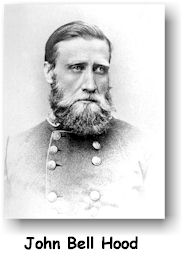 29 December 2007
29 December 2007
 28 December 2007
28 December 2007
 27 December 2007
27 December 2007
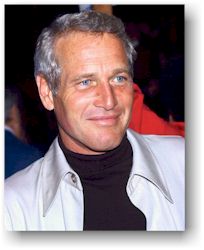 20 December 2007
20 December 2007
 19 December 2007
19 December 2007
 18 December 2007
18 December 2007
 17 December 2007
17 December 2007
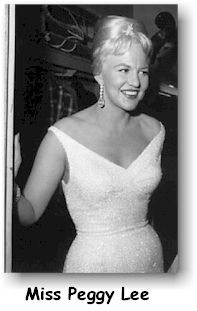 14 December 2007
14 December 2007
 13 December 2007
13 December 2007
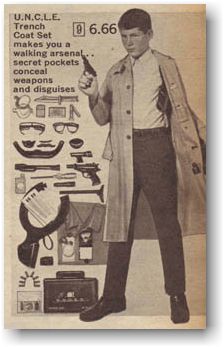 12 December 2007
12 December 2007
 11 December 2007
11 December 2007
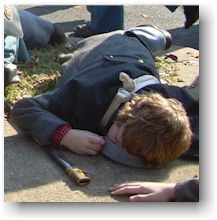 10 December 2007
10 December 2007
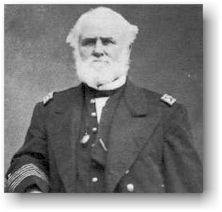 7 December 2007
7 December 2007
 6 December 2007
6 December 2007
 5 December 2007
5 December 2007
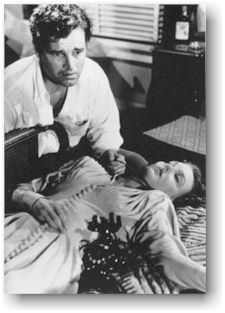 4 December 2007
4 December 2007
 3 December 2007
3 December 2007
 30 November 2007
30 November 2007
 29 November 2007
29 November 2007
 28 November 2007
28 November 2007
 27 November 2007
27 November 2007
 26 November 2007
26 November 2007
 23 November 2007
23 November 2007
 22 November 2007
22 November 2007
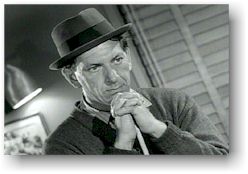 21 November 2007
21 November 2007
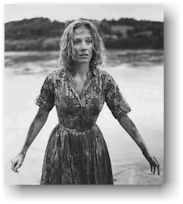 20 November 2007
20 November 2007
 19 November 2007
19 November 2007
 16 November 2007
16 November 2007
 15 November 2007
15 November 2007
 14 November 2007
14 November 2007
 13 November 2007
13 November 2007
 5 November 2007
5 November 2007
I'll be in California for a week starting tomorrow, first Santa Clara for the business trip part, then Los Angeles for the vacation part. So no blog updates. Since I won't be doing a daily calorie count, the challenge will be to keep from strapping the feed bag on over my face.
One last thing. Since people know I do a website about the 1970's, I've been e-mailed about this blog (the 1977 Penney's catalog) a lot. The funny thing is, I was 21 in 1977. I know I've thumbed through catalogs and magazines just like this without wretching violently. In defense I can only state that the overall bad taste of the era was something that just sort of crept up on us. Once, in the Sixties, we were wearing tee shirts and jeans. Then, nearing the end of the Seventies, we wound up looking like this. I'm sorry, is all. I apologize...
4 November 2007
It occurs to me that this file is getting way too big, so I put all the April to October entries in an archive, here.
Friday. Friday, Friday, Friday. This workweek was burdensome; I had to do performance appraisals with my staff. I'm happy to see that effort finished for another year!
I quit that Howard Fast collection about the American Revolution. The first book, about Washington's retreats leading up to the battle of Trenton, was quite good. The next book, about Valley Forge, was just plain bizarre. It depicted the Valley Forge encampment in the same terms that a writer would use for a Holocaust prison camp. While I suppose that there might be similarities, it was more an investigation into the culture of death than a depiction of a military camp. Anyway, the little alarm in my head that normally tells me whether something I'm reading is probable history or creative writing was going off; I suppose the fact that the author was a Commie influenced me somewhat. So... I threw it out and, this morning, read a recipe book about Civil War camp food. It confirms my other readings that, in general, everything the typical Civil War soldier ate while in camp was heavily prepared with some variation of fat and/or grease. It reminds me of a camp incident...
Once, I had just prepared a half pound or so of bacon for me and my pards to share. I was about to pour the resultant grease onto the fire - always a favorite trick of mine, I liked to watch the flare-up - when a spry young fellow bounded over and asked if he could have the bacon grease. "Sure," I said. "What do you want it for?" With a huge grin he replied (in a dialect), "I'm a-goin' to prepare Skilligalee!" (Skilligalee is a hard tack cracker fried in bacon grease - a venomous mixture. An Alka-Seltzer chaser is recommended.) So I poured my grease into his pan; he seemed to act as if I had just droped liquid gold into this possession, and with a breezy "Thanks, Yank!" he literally ran off to his company street. Weird.
My funniest bacon story, however, took place just before dawn at a different battle reenactment. My pard, Mal Stylo, and I were standing over a campfire. I had just dropped a pound of bacon, still in the plastic sealed wrap, onto a fire. I had decided, that's it - no more bacon at Civil War reenactments. I can't stand the taste anymore. I'm done with it. I don't even want to look at it or think about it or bacon grease anymore. Just then a dweeby fellow Yank in our regiment (whom I nicknamed "Sparky") came up and looked at the bacon, and, in his incredibly annoying, whiny voice, said, "I wouldn't want to be around that bacon when it blows." Mal looked at him with raised eyebrows and a smile on his face and echoed, "When it blows?" Suddenly an image of the three of us standing around a campfire before dusk, blackened faces and bits of raw bacon dangling from our hats and bodies appeared in my mind's eye, and I started laughing uncontrollably. Explosive bacon! Sparky, nettled, shoved off. I do believe that was the last I ever saw of him.
Sparky was characteristic of just about any gathering of men (reenacting, the real armed forces, rugby), in that there often seems to be one guy that nearly everyone else finds incredibly annoying. His two big things were singing around the campfire and attempting to talk guys into making homemade ice cream. The singing was memorable in that he possessed a reedy, warbly voice. Hearing him sing one of those maudlin, over-sentimental Civil War tunes like "Just Before the Battle, Mother" or "The Vacant Chair" (more or less his signature tune) was unforgettable. And the making ice cream thing... nobody wanted to do it because it involved significant work on hot, humid days. Most guys agreed that it was far easier to sit around the campfire and drink booze.
Sparky's most notable achievement, however, was leading some of the unit teenagers away in what he called "foraging." This involved going from door-to-door in a Northern Virginia townhouse development near Sully Plantation, in uniform and with muskets (!), asking for food. In effect, begging - except armed and with a gaggle of teens. The idea was to experience the foraging of the Civil War era, when soldiers would show up at farms asking for eggs, bread or whatever else the farmers could spare. Sparky returned to camp with some eggs, which he showed to us with a sort of, "See what you missed by not going with me!" air. I asked one of the more intelligent teenagers about the experience, and, smiling, he recounted that one perplexed homeowner, clearly not getting it, replied, "There's an ATM at the bank down the street."
Have a great weekend and, if you prepare bacon, be careful...
Yesterday I mentioned that my haplogroup was R1b. You might know I'd get an e-mail from the other genealogist in Suburbs, Jeff Gravatt, asking me if I knew my subclade (divisions within haplogroups). Nope; I didn't pay for that, as it wouldn't give me any more genealogically-useful information. Jeff's subclade is R1b1c - as it turns out, the most common subclade within R1b. It is not strongly localized to a place in Europe; in fact, I'm not sure what it designates. We may have to wait and get more data for a picture to emerge. But it certainly can be a discussion point with people... see, for instance, this page. It's fascinating to see what used to be a rather scientifically daunting subject - human genetics - turn into a more popular pursuit or hobby. People are now discussing their haplogroups and subclades as others do their cell phones and cars.
Another reader told me that he followed my links yesterday to Niall of the Nine Hostages, a High King of Ireland. Niall is one of the rather well-known genetic human interest stories, and an illustration of how genetic genealogy can provide answers to family and place name questions. You can read the relevant wikipedia link here.
I finished that "Journey of Man" DVD last night... it had what I thought was a rather clunky, politically correct conclusion. The presenter finishes off with the observation that we are all more closely related than we think, which I have realized for years. (You can't do much work in genealogy without coming to this conclusion. For instance, in following up my wife's line I learned we're actually ninth cousins three times removed.) He also said, dramatically, that "we are all African under the skin" - because the first genetically tracable group of humans descended from African bushmen living tens of thousands of years ago. Okkkaaay, I can't and won't argue with that. But it sounds fashionably challenging and provocative. What if, say, the first genetically tracable group of humans originated in London, England or Indianapolis, Indiana? One suspects he wouldn't be so enthusiastic to announce that we are all Englishmen or Hoosiers under the skin.
Well, whatever. We play identity politics however we want. I can identify myself in many ways: Mormon, caucasian, male, heterosexual, conservative, Republican, rugger, Marine, bass-player, Breitling-wearer, Volkswagen-driver, Virginian, husband, father of three, haplogroup R1b, half Anglo-Saxon-German, half French-Canadian, Southern Californian, Union Civil War reenactor, American Revolutionary War reenactor, etc. etc. etc. The one that rises to the top in importance is probably also contextual. And there are people out there who will either like or dislike or admire or resent me based on any one or more of the things on the list. But when it all comes down to it, there are only two classes of people: those who class people into two classes and those who don't.
A funny little race identity incident took place over the weekend, with my daughter and her high school friends. They found a kid from another high school who looked like a rather Anglo-Saxon version of a former classmate of theirs of Lebanese origin nicknamed "Wally," so they called this new find, "the White Wally." The following conversation followed:
We used to have a saying in the Marines: There isn't white or black or yellow or red - there is only green. But it sadly wasn't enough to stave off the occasional race-based incident.
 2 November 2007
2 November 2007
 1 November 2007
1 November 2007
Me: What do mean "white" Wally? Wally is white.
Kids: Nuh-uh. Wally is Lebanese.
Me: The Lebanese are Caucasians.
Kids: (Pause) Nuh-uh.
Me: (Sigh)
Apparently nowadays, to high-schoolers, "white" means "Anglo-Saxon," or something along those lines.